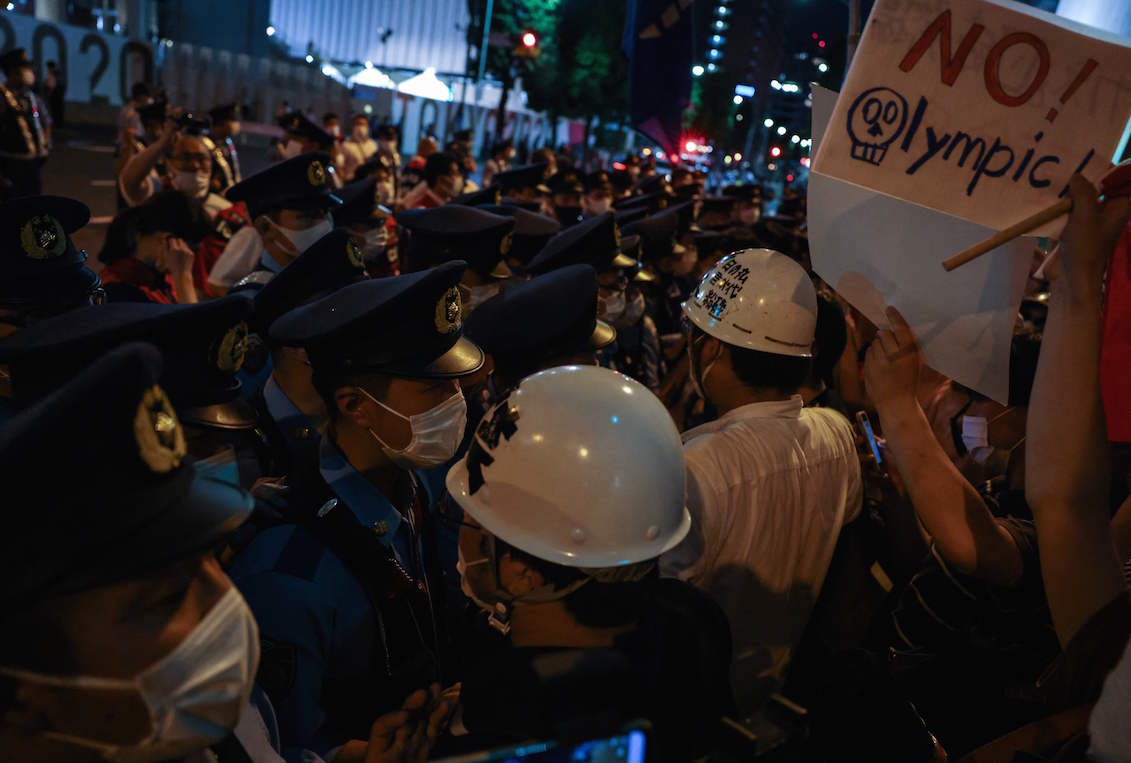
Japan Medical Association fearful of medical system collapse as COVID-19 surge persists alongside 2020 Olympics
On July 29, the country reported over 10,000 new cases of COVID-19 for the first time since the pandemic began more than a year ago.
The Japan Medical Association issued an emergency request on Thursday, July 29, suggesting the country take more urgent measures to curb the spread of COVID-19 as the 2020 Olympics concludes its first week in Tokyo.
The Japan Medical Association is the country’s largest association of doctors. The request was issued directly to Japan’s capital, Tokyo, where the Olympics are being held.
This past May, a survey from The Asahi Shimbun — a popular Japanese newspaper started in 1879 — showed that 83% of participants did not want the Olympics to occur this July.
Out of this group, half answered that the Olympics should not happen, while the other half said the Olympics should be postponed again. Fourteen percent of respondents said they wanted the Games to occur, but this number was cut in half from a poll conducted just a month earlier.
The same survey also discovered that 67% of respondents did not approve of Prime Minister Yoshihide Suga and his government’s response to the pandemic.
Tokyo’s governor, Gov. Yuriko Koike, is urging younger residents to heed precautions, get their vaccine, and avoid non-essential outings. Another concern for the country is the spread of vaccine misinformation that has been observed particularly among youth in Japan.
Tokyo is Japan’s largest city by a great margin, and one of the most populous metropolitan areas in the world, making the surge specifically alarming. Tokyo’s population reaches nearly 14 million.
The influx of Olympic participants — despite a lack of fans — worsens the situation. One-hundred and ninety-eight cases have been linked to the Olympic Games thus far.
While there appears to be no direct links between outbreaks amongst Olympic participants and the general public, the more contagious Delta variant of the virus further complicates the situation, and is mostly what the spread is being attributed to.
Normalization of pre-COVID activity is also harming the country, as the current state of emergency has prompted little urgency. Dr. Shigeru Omi, a top government medical advisor, shared worries over the lack of concern:
“A sense of crisis should be shared across Japanese society,” said Omi, after a task force meeting this past Wednesday, July 28.
Despite the new surge’s origins, Tokyo has taken an unfortunate hit, and worries persist as the Games proceed in the city.
The Japan Medical Association’s head, Toshio Nakagawa, suggested people work remotely and promoted the vaccination of people aged 40 through 64. The association is urging government officials to work to make more vaccines available to the public.
RELATED CONTENT
Nakagawa voiced concerns for medical workers strained by growing infections. Medical collapse could occur in Tokyo if the amount of cases grows to a level that overwhelms and outnumbers medical workers.
Japan has faced many issues containing the spread of the coronavirus throughout the pandemic. An early concern in Japan was the lack of proper containers used to preserve the COVID-19 vaccine.
Other concerns, such as a low vaccination rate of about 26.3%, as reported by the Associated Press, also plague the island.
Earlier this year, as the vaccine was first arriving in a number of nations, Japan had no choice but to discard millions of Pfizer vaccines, because the shots employed the wrong type of syringes, marking yet another setback in a pool of many.
Prime Minister Suga has also faced controversy throughout the pandemic for his unpopular attempts at reversing economic shortfalls.
Suga was questioned for his decision to open the “Go To Travel” subsidy campaign, a program meant to revive domestic tourism and stimulate the economy. Experts feared the campaign would lead to a certain third wave of the coronavirus.
Suga stepped into his role after former Prime Minister Shinzō Abe stepped down amid the pandemic. Abe’s decision was influenced by medical complications concerning his ulcerative colitis.
Suga shared that he has no plans to cancel or suspend the ongoing Olympic Games despite Tokyo reporting record numbers of cases for three consecutive days.
On Thursday, Tokyo reported 3,865 new cases. Nationwide, the country reported 10,385 new cases, exceeding 10,000 new reported cases for the first time since the pandemic’s start.










LEAVE A COMMENT: